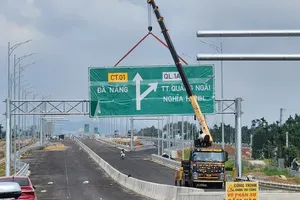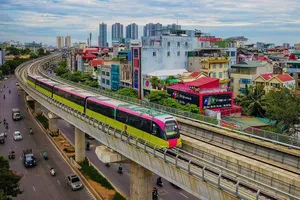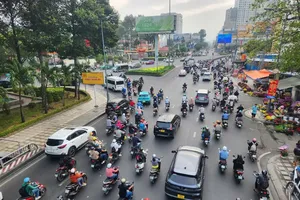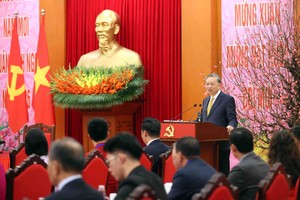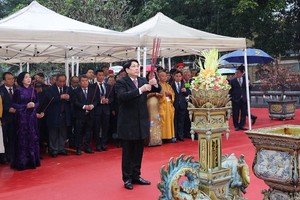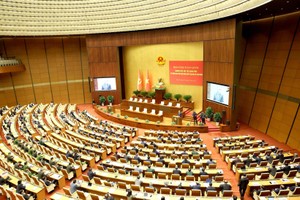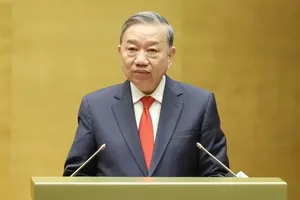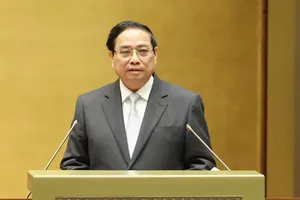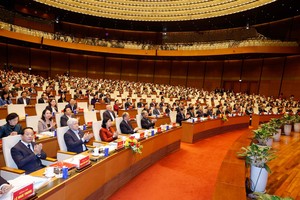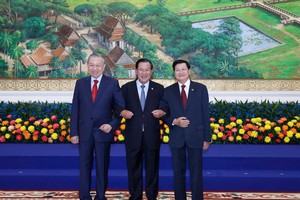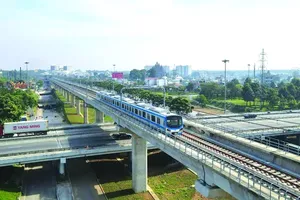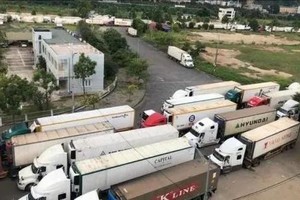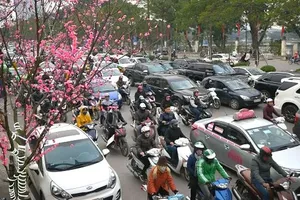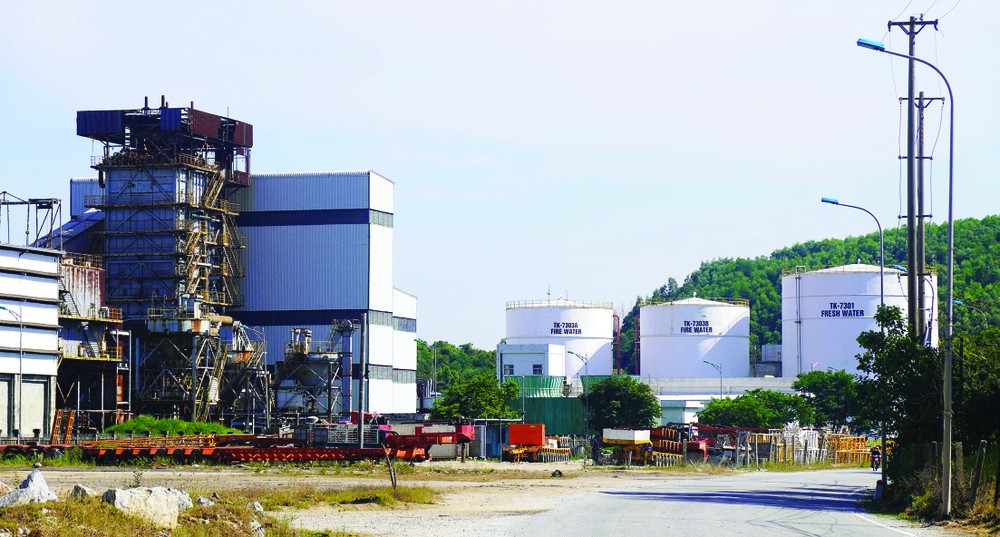
State-funded projects include the Biofuel (Ethanol) Factory in Tam Nong District of Phu Tho Province, with an investment of VND 1,500 billion. The factory in Dung Quat Economic Zone in Quang Ngai Province’s Binh Son District with an investment of more than VND 2,200 billion. The factory in Bu Dang District in Binh Phuoc Province with an investment of VND 1,600 billion.
However, all three of these factories have been closed for many years.
The Dung Quat Ethanol Factory in Ruins
Recently, in the scorching midday sun, the imposing rusting iron warehouses, storage tanks, pipes, raw material, biofuel, and alcohol processing areas in Quang Ngai Province-located Dung Quat Ethanol Factory are gradually deteriorating and rusting.
The entire 24-hectare area which is the land and fields of residents of Dong Lo village in Binh Thuan Commune before is now littered with soulless iron blocks, abandoned amidst the weeds.
59-year-old resident Tran Thi Loan of Dong Lo village recounted that before the factory was built, her family had 9 plots of land, just enough to make a living. In 2002, when the Dung Quat Ethanol project was launched, the local authorities mobilized and persuaded the people to give up their land for the project with compensation of only a few tens of thousands of Vietnamese dong per square meter.
She continued that by 2014, the factory was operational, causing bad odors resulting in residents’ complaints. The authorities and the company then organized to relocate the residents. Her family had to give up all their 1,800-square-meter garden land and residential land to move to other places as per the authority’s decision.
When compensation was made, the authorities collected her family’s red books, and they have been waiting for more than 10 years for resettlement, so members of her family have been living next to the factory.
Living in fear and with deteriorating houses, Ms. Loan's family does not dare to upgrade or rebuild. Their grown children have married and settled down but have no land to live on, and there is no more land to farm.
Chairman Do Minh Huan of the People's Committee of Binh Thuan Commune, said that many households in the locality are in the same situation as Ms. Loan's family. The locality has proposed that higher authorities consider revoking the previous land requisition notice and decision to offset debts and solve the difficulties for households living near the Dung Quat Ethanol Factory. However, it is very difficult to revoke this land requisition notice and decision, so people should wait.
According to the consolidated financial report of Binh Son Refining and Petrochemical Company Limited (the parent company of Central Petroleum Biofuel Joint Stock Company - the investor of the Dung Quat Ethanol Plant), the Dung Quat Ethanol Plant project commenced in mid-2009 with an initial capital of nearly VND1,850 billion, later increasing to VND2,100 billion. On January 1, 2014, the plant officially began commercial operation.
However, it consistently incurred losses due to ethanol prices in the market being lower by over VND2,000 per liter compared to production costs. In April 2015, the plant closed, and by March 2016, it faced a liquidity crisis, resulting in a temporary suspension of employee salaries. The plant’s situation worsened as losses continued.
As of December 31, 2023, BSR-BF’s short-term debt exceeded short-term assets by VND1,532.3 billion with accumulated losses reaching VND1,588 billion and overdue payables amounting to approximately VND1,566.7 billion.
The overdue payables as of December 31, 2023, include interest payments of around VND 439.6 billion and outstanding principal balances of approximately VND1,127.1 billion. BSR-BF mortgaged all fixed tangible assets, including buildings, machinery, and equipment from the Dung Quat Ethanol Plant, to secure the bank loans.
A representative of BSR-BF Company said that the plant has been shut down for a long time. He added that the company has repeatedly submitted petitions to the corporation, the central government, and the government, but the issues have not been resolved. Meanwhile, a leader of the Quang Ngai Provincial People's Committee said: "The province also expected the company can be restarted, as its suspension is a waste of land, capital, and investment assets. Everything is waiting for the government to review and give instructions.
Many individuals committed wrongdoings
The Phu Tho Ethanol Plant in Phu Tho province has been abandoned for a long time, with no activity whatsoever. The existing components have turned into a massive “pile of steel,” despite the plant’s considerable scale. For nearly 15 years, the factory has not produced a single drop of fuel, even though it has endured rain and sun. Billions of Vietnamese dong are buried in this steel heap, and hundreds of billions of Vietnamese dong in interest accrue each year. The abandoned project is overseen by two security teams—one hired by a bank and the other by the Phu Tho Petrochemical and Biofuel Joint Stock Company (PVB).
A vice chairman of the People’s Committee in Tam Nong District said that local authorities have contacted the central government regarding this project, but they received no feedback. Local inhabitants and the government have repeatedly requested swift resolution to create employment opportunities for the area, as leaving the project abandoned is a significant waste.
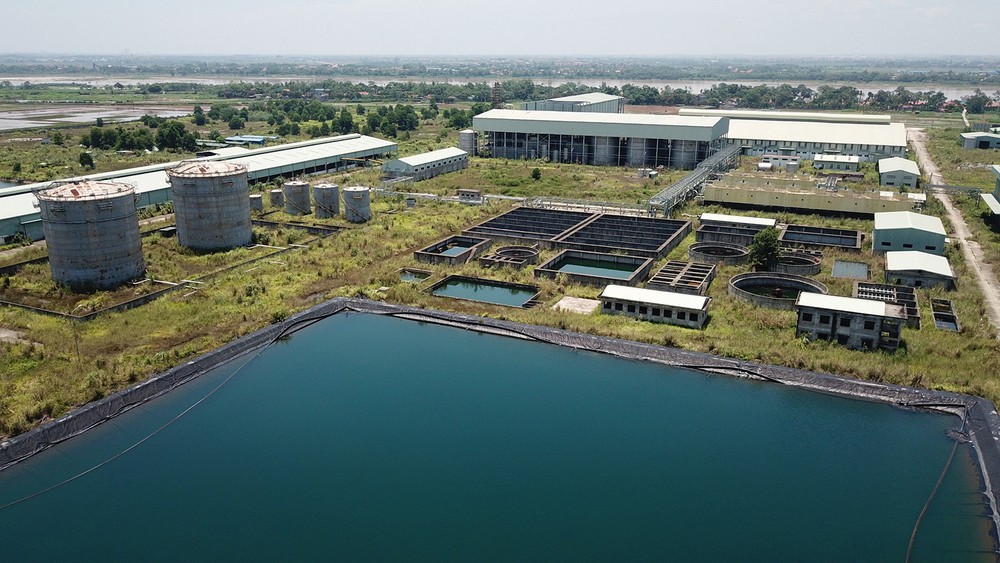
According to records, the Phu Tho Ethanol Plant project, managed by PVB, was initiated by the Vietnam Oil Corporation (PVOIL) in June 2009 on a 50-hectare site primarily used for rice cultivation in the three communes Co Tiet, Tam Cuong, and Van Luong (now Van Xuân). The initial investment was VND1.7 trillion, which later increased to over VND2.484 trillion. However, after investing more than VND1.5 trillion, the project has remained dormant since 2011. Government inspectors concluded that there were wrongdoings in this project by the end of 2016.
Specifically, after the government approved the biofuel development plan in 2015 with a vision extending to 2025, the Vietnam Oil and Gas Group (PVN) decided to invest and direct its member units to establish two joint-stock companies and one joint venture to implement three ethanol production projects in three provinces namely Phu Tho, Quang Ngai, and Binh Phuoc (each plant with a capacity of 100 million liters per year) Funding from shareholders covers 30 percent while the remaining 70 percent comes from commercial loans).
As of the time when the inspection agency jumped into an investigation in December 2014, the Ethanol Dung Quat and Binh Phuoc projects had completed their investments. However, the Ethanol Phu Tho project, which began in September 2009, remains unfinished due to the contractor suspending construction since November 2011. The primary reason is that the investor chose a contractor lacking the necessary capacity and experience in implementing biofuel projects, leading to a construction halt. Despite this, interest payments on bank loans and salaries for security personnel continue, even though the project has become derelict.
Regarding the Ethanol Phu Tho project, numerous leaders from PVN, PVB, and the construction contractor, along with other related individuals, have faced legal proceedings due to wrongdoings in the construction investment, resulting in significant consequences.

